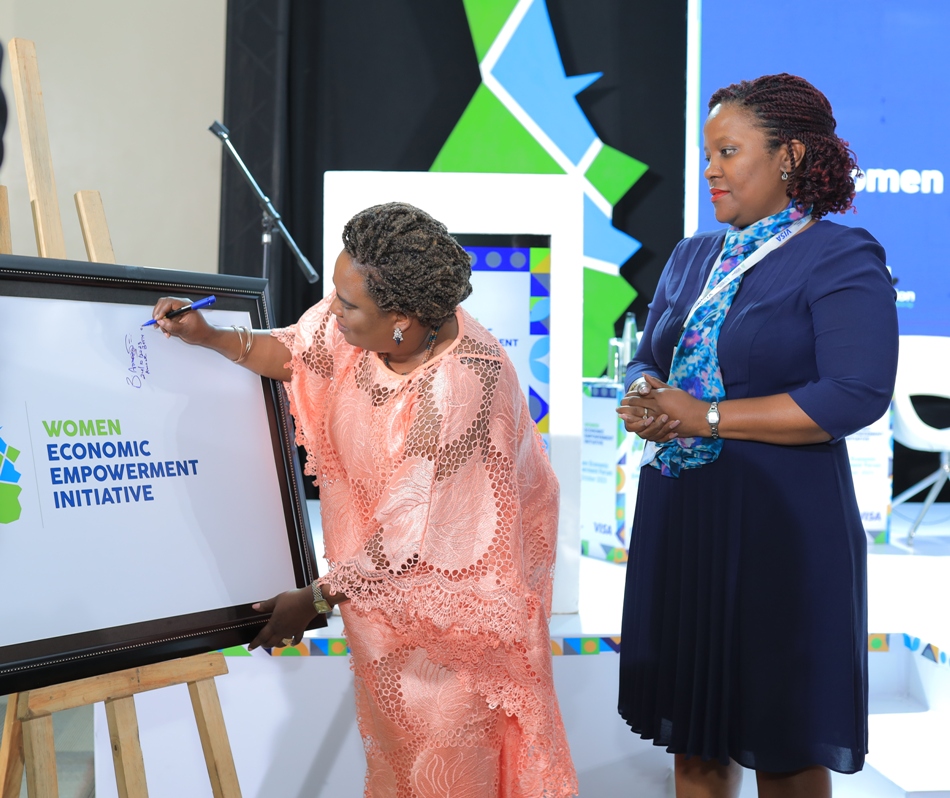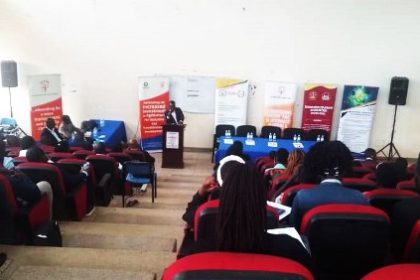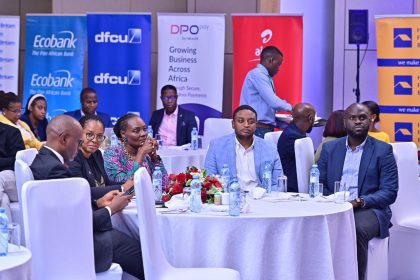Bankers association launches program for women financial empowerment
 Amongi launches the program while Arapta looks after highlighting that women still lag behind their male counterparts, especially in income and employment opportunities.
Amongi launches the program while Arapta looks after highlighting that women still lag behind their male counterparts, especially in income and employment opportunities.
The Uganda Bankers Association (UBA), in partnership with Bank of Uganda (BoU) have launched the Women Economic Empowerment Initiative (WEEI), a program intended to address the myriad of issues that hinder the progress of women in the financial sector profession and ultimately women entrepreneurs.
Launching the initiative recently, Betty Amongi, the Minister of Gender, Labour, and Social Development advised women to liberate themselves and stop locking themselves in cultural norms that limit their upward development.
“A lot of women, even the educated ones, have to consult their husbands before making any financial decisions with their own hard earned money. In this era, this shouldn’t be happening. Despite the different initiatives that the government has put in place to emancipate women, for various reasons, women still lag behind their male counterparts, especially in income and employment opportunities. This has affected the progress of, not only Uganda, but the global economy,” she said.
She assured women in the banking sector and other businesses of the government’s commitment to move the gender equality agenda forward by supporting women businesses both financially and policy wise.
“We have received from the World Bank a grant of about a billion dollars that will soon be given out to women entrepreneurs through commercial banks that agree to lend it out at low-interest rate,” she said.
The Deputy BoU Governor, Dr Michael Atingi-Ego, said there is a growing recognition of women’s leadership value in the financial sector. “In the financial industry, women leaders make a positive impact, yet gender diversity efforts persist. More women secure leadership roles, but top-tier positions still lack representation. Ongoing efforts are crucial to promote women into leadership across all sectors,” he said.
Referring to the BoU itself, Dr. Atingi-Ego said, “Our sustainability agenda places a strong focus on diversity and inclusion, including gender, race, and disability diversity, as well as employee relations, covering areas like satisfaction, engagement, compensation, and benefits. Empowering women within the BoU and supervised financial institutions is an indispensable part of this endeavour.”
Sarah Arapta, the UBA chairperson said she was happy that women now account for more than half of the 19,362 employees in the financial sector. She, however, said this is only visible at the low-level positions because the numbers drop when it comes to the seniority positions. She cited the example of UBA where only eight out of the 36 member financial institutions are women chief executive officers.
Arapta said the WEEI program in the UBA is a pioneer social impact initiative that will help achieve the Sustainable Development Goal 5; ‘Achieving Gender Equality and Empowering All Women and Girls’.
Uganda has been widely hailed for policies that have encouraged women to take up influential positions in government and the private sector, which have been dominated by men.
At the same time, according to latest figures the growth of women-owned businesses has outpaced that of men by 1.5 times, growing at 236% compared to 153% for businesses belonging to men.
Elsie Attafuah, the UN Development Program Resident Representative in Uganda said the changing statistics on gender representation and employment spell a better situation in the coming years to come.

 Shell Club rewards first winners with brand new motorbikes in Mbale
Shell Club rewards first winners with brand new motorbikes in Mbale
 CSBAG roots for increased funding for renewable energy
CSBAG roots for increased funding for renewable energy
 Equity walks tried and tested path to deliver solid half-year
Equity walks tried and tested path to deliver solid half-year
 Nile Breweries primes retailers for brave new world
Nile Breweries primes retailers for brave new world
 Uganda calls for collaboration with airlines in fight against illicit trade in wildlife
Uganda calls for collaboration with airlines in fight against illicit trade in wildlife
 Airline industry top guns dust-off passports for Uganda hosted 55th AFRAA annual meet
Airline industry top guns dust-off passports for Uganda hosted 55th AFRAA annual meet
